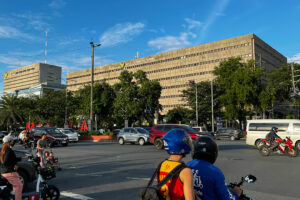Prime Minister Narendra Modi will inaugurate and lay the foundation stone of multiple development projects worth over ₹12,200 crore at around 12:15 pm on Sunday, January 5 in Delhi.
The Prime Minister will also undertake a ride in Namo Bharat Train at around 11:15 am from Sahibabad RRTS Station to New Ashok Nagar RRTS Station, according to the Prime Minister’s Office press release.
Marking a significant milestone in enhancing regional connectivity, PM Modi will inaugurate the 13 km stretch of Delhi-Ghaziabad-Meerut Namo Bharat corridor between Sahibabad and New Ashok Nagar, worth around ₹4,600 crore.
With this inauguration, Delhi will get its first Namo Bharat connectivity. This will significantly ease travel between Delhi and Meerut and will benefit millions of people through high-speed and comfortable travel along with safety and reliability.
The Prime Minister will also inaugurate the 2.8 km stretch between Janakpuri and Krishna Park of Delhi Metro Phase-IV worth around ₹1,200 crore. This will be the first stretch of Delhi Metro Phase-IV to be inaugurated. The areas of West Delhi such as Krishna Park, parts of Vikaspuri, and Janakpuri among others will benefit, added the release.
PM Modi will lay the foundation stone of the 26.5 km Rithala – Kundli section of Delhi Metro Phase-IV, worth around ₹6,230 crore.
This corridor will connect Rithala in Delhi to Nathupur (Kundli) in Haryana, significantly enhancing connectivity in the North-Western parts of Delhi and Haryana.
Key areas to benefit include Rohini, Bawana, Narela, and Kundli, improving access to residential, commercial, and industrial zones. Once operational, it will facilitate travel across Delhi, Haryana, and Uttar Pradesh through the extended Red Line.
The Prime Minister will also lay the foundation stone for the new state-of-the-art building for the Central Ayurveda Research Institute (CARI) at Rohini, New Delhi, to be constructed at the cost of around ₹185 crore. The campus will provide state-of-the-art healthcare and medicine infrastructure, added the release.
The new building will house the Administrative Block, the OPD Block, the IPD Block, and a dedicated Treatment Block, ensuring an integrated and seamless healthcare experience for patients and researchers alike.









Leave a Comment